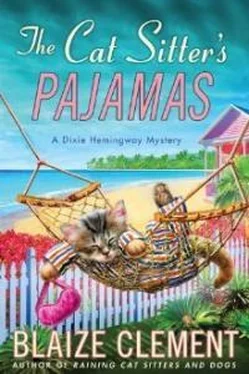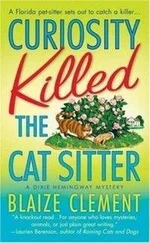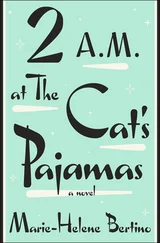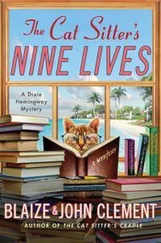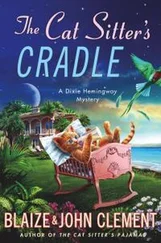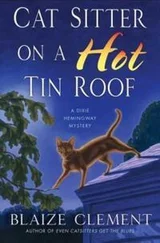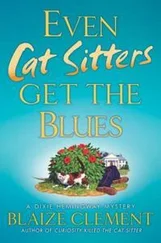Cupcake said, “I’m going to bed as soon as we get home.”
I said, “The crime-scene cleaners will have to finish their work before you can go home. I’ve booked you into the Ritz.”
They turned red eyes on me like forest wolves.
Cupcake said, “What?”
Jancey said, “Crime-scene cleaners?”
I braced myself. They still didn’t understand what had happened at their house. They hadn’t allowed their minds to stretch around the facts and imagine the scene in its entirety. They hadn’t seen a woman lying in a pool of her own blood. An adult human body contains about four or five pints of blood, depending on its size. That’s a lot of blood to pour onto a floor.
As gently as possible, I said, “Blood has bacteria that seeps into cracks and crevices and gets into the air. It takes a specialized cleaning crew to sanitize a house where a brutal homicide has taken place.”
They both flinched at the word “brutal,” and Jancey’s eyes filled with tears.
I hated to be the one to explain the ugly reality they’d come home to, but bacteria from a homicide victim’s blood might turn out to be the least ugly thing I had to tell them.
I said, “You can go home tomorrow morning. I’ll bring Elvis and Lucy home from Kitty Haven.”
They had such worried faces that I searched for something to lighten the mood. “Elvis carried a slip of paper to Kitty Haven. It’s still in his carry case. He’ll be so glad to get it back!”
They tried to laugh, managed weak smiles, and trudged downstairs to their borrowed car to drive to the Ritz.
I closed the shutters and trudged to my own bed, but not to get into it. First I pulled it away from the wall and opened the secret drawer built into its dark side. The drawer was custom made, with carved niches for each of the guns it holds. After Todd died and I left the sheriff’s department, both our department-issued guns had to be returned, but I still have our personal guns. I’m licensed to carry, and I qualify for all of the guns I own. I regularly practice with them, too.
My personal favorite is a snub-nosed .38 Special revolver with a rubber boot grip. I lifted it from its niche, loaded it with 125 g rounds, filled a couple of speed loaders for backup, and laid it on my bedside table. I did not intend to be caught defenseless again.
14
When my alarm went off at 4:00 A.M. next morning, I had slept three hours. My brain begged for more sleep, but my body crawled out of bed and dragged to the bathroom like a half-comatose slug. Still half asleep, I brushed my teeth, pulled my hair into a ponytail, and got dressed for the day.
Before I stepped onto the porch, I picked up my revolver from the bedside table and held it ready while the metal shutters rose to the top of the French doors and settled into their soffit. I switched on the overhead porch light and looked into every corner to make sure nobody was waiting for me to come out. Nobody was. My assailants from the night before were probably sound asleep, while I, the innocent one, was groggily creeping around with a gun in my hand.
I hit the light switch to plunge the porch back into shadows and closed the French doors. With one hand holding the gun, I started down the stairs, hitting the remote button with the other hand to close the shutters. Being on guard against attack or intruders takes forethought, common sense, and manual dexterity.
The salt air was cool and fresh. The trees glittered with fairy lights made by moonbeams bouncing off dewdrops. The vehicles in the carport shone with early-morning sweat, and seabirds sleeping on the cars assured me that nobody was huddled out of sight in the shadows.
In the Bronco, I slid the .38 under my thigh where I could quickly reach it in one move. Strictly speaking, that was an illegal place, because a Florida license to carry a concealed weapon stipulates that a gun has to be stashed in such a way that it requires two moves to get to it. Like opening a car pocket or a purse and pulling it out.
With my gun illegally ready under my thigh, I drove at a sedate pace down the lane to Midnight Pass Road, looked both ways, and made a careful legal left turn. At Tom Hale’s condo building, security lamps made puddles of light on the parking lot’s dark pavement. I parked in a well-lit visitor’s spot by the front door, dropped my revolver in my pocket, and hustled into the bright lobby. Before I stepped into the elevator, I looked inside to make sure it was empty.
Billy Elliot met me at the door all smiles and wags and knee-kisses, and we trundled down the hall to the elevator. He must have sensed that I was operating with half-charged batteries, because he tempered his speed when we ran the parking-lot track. Greyhounds are considerate like that.
Upstairs, I whispered good-bye to him and left him whirling his tail and grinning.
The run had wakened my blood, so I drove off with more of my synapses firing.
Mostly, they were firing questions about the men who had attacked me. Who were they? What had they been looking for?
Coming so soon after the murder in Cupcake’s house, I was almost certain the incidents were connected but couldn’t imagine how. All morning long, while I felt the weight of the .38 in my pocket, my mind played with the question, but I never came up with an answer.
After I finished my last pet visit, I called Cupcake’s cell phone.
Cupcake said, “We’re waiting for room service to bring breakfast.”
I suppressed a snide comment about people who didn’t have to get up early and walk dogs and clean litter boxes.
He sounded edgy and achingly hollow, like a man who hadn’t eaten in over twenty-four hours. I hoped the Ritz’s room-service people understood they had to bring large quantities of whatever they were bringing.
I said, “What about your luggage?”
“I called a friend, and he’s driving the skycap’s car to the airport. He’ll get our stuff from baggage claim.”
I heard Jancey’s voice in the background telling him what to say to me.
He said, “Jancey refuses to wear the same clothes she wore all the way from Parma, so she can’t get dressed until our luggage gets here.”
“Have you talked to Sergeant Owens?”
“He said we could go home. The officer heading the investigation will come by later and get a statement from us.”
Dully, I said, “I’m going to the Village Diner and have breakfast. Then I’ll go get Elvis and Lucy and bring them home.”
I figured we’d all feel better after a good breakfast.
When I parked in the diner’s graveled lot, I took the revolver out of my pocket and locked it in the glove box. There are some places where it’s just wrong to take a gun, even if it’s legal. On the way to the diner’s door, I passed a gaggle of men leaning over the opened hood of a sexy red Porsche. One of them, obviously the car’s owner, was punching the air while he talked.
“It just spent a week at the dealer’s! I just picked it up this morning!”
The other men looked sympathetic, all of them rushing to tell their own horror stories about their cars. They didn’t even notice me walk by. Not that men always noticed me, but it was a bit deflating to know that a bunch of men were more interested in a car’s innards than in me. Especially since I knew that not one of them knew what he was looking at when he looked inside the car.
Used to be that men prided themselves on knowing car engines. They’d gather in driveways with beers in hand and pop the hood—once they passed the age of fifteen they always called it “popping the hood”—and they’d all lean over and with their free hands diddle the hoses and wires and dipsticks. They’d pull out a spark plug and examine it like forensic scientists examining blood samples. Then they’d do whatever was needed to get the car engine running like a Swiss watch. Now, men open the hood and peer in and scratch their heads. They say, “Damned if I know what’s wrong. You’ll have to call a mechanic.” Because it’s all computers now, and not a man alive understands the car he drives. Women don’t either, but then we never did.
Читать дальше
